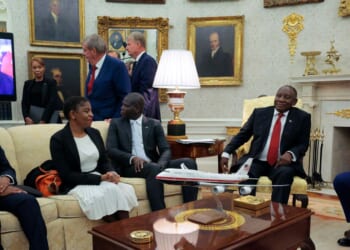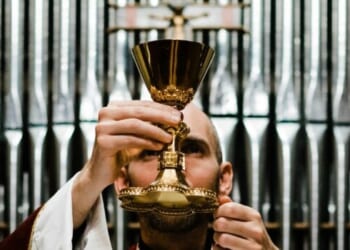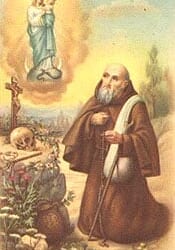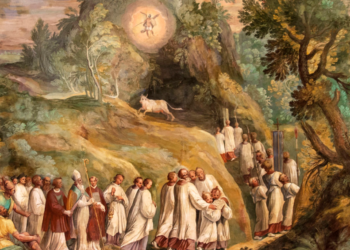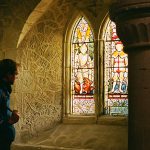
Why are so many American colleges and universities in crisis? Drew Gilpin Faust, an accomplished Civil War historian, gave the answer, perhaps unwittingly, at her 2007 inauguration as the twenty-eighth president of Harvard University.
Noting the Latin inscription Veritas [Truth] on Harvard’s shield, President Faust said that, at the university’s founding, that motto was “intended to invoke the absolutes of divine revelation, the unassailable verities” that shaped the mind of John Harvard, the Puritan minister and scholar whose benefaction made the school possible. In 2007, though, Veritas was understood “quite differently” on the banks of the Charles River. Truth, Faust continued, is not a “possession,” and those “unassailable verities” were no longer blowing through Harvard Yard with the autumnal leaves.
Rather than proceeding from a solid foundation of certain truths, intellectual life in the 21st century, President Faust suggested, was a matter of aspiration rather than conviction. Thus, the moral imperative of the life of the mind, as Dr. Faust understood it, was “to commit ourselves to the uncomfortable position of doubt.” For only in that “uncomfortable position” would students and faculty be able to live in “the humility of always believing there is more to know, more to teach, more to understand.”
This posture of radical skepticism—a principled refusal to say that there are certain things we can know to be true, period, not just true-for-me—strikes most people as ludicrous, if not downright absurd.
We know that Michelangelo’s Pietà is beautiful, and that its beauty is beauty-in-itself, not just beauty-for-me. Ditto for Bach’s St. Matthew Passion, Beethoven’s Emperor concerto, Mozart’s Ave Verum — and a well-thrown slider that dives away from the batter at the last instant. We know that, on its centenary, The Great Gatsby unveils perennial truths about the human condition. Or to reverse direction and traverse the via negativa, we know that rape and the torture of children are always and everywhere wrong — just as we know that anyone who denies that is a moral cretin. The human capacity to grasp the truth of things is not confined to a priori judgments, like 2 plus 2 always equals 4 in the base-ten system. Our intellectual reach is greater than that, and so is our intellectual grasp.
Ideas, as always, have consequences. The radical skepticism about the human capacity to know anything with certainty—a skepticism commended by Drew Faust in 2007 as stoic heroism — underwrites both nihilism (there is no inherent meaning in life) and relativism (there are no moral absolutes). And that lethal cocktail of skepticism mixed with nihilism and stirred into relativism has contributed mightily to the cultural and intellectual conditions on campus that have become painfully obvious over the past year and a half: conditions in which Claudine Gay (Drew Faust’s second successor as president of Harvard) waffled on the question of whether antisemitic, genocidal ravings in Harvard Yard were protected by “academic freedom,” because it all “depends on the context.”
Dr. Faust’s commitment to know more, teach more, and understand more is a noble and worthy one. A similar commitment made possible the invention of what we know as the “university” in the 13th century. And who invented the university? The Catholic Church, which believed in “the absolutes of divine revelation.” That belief, contra Drew Faust, was entirely compatible with robust debate. And such debates helped create the uniquely self-critical culture we know as Western civilization and the explosion of knowledge that Western civilization made possible—not least in the sciences.
That is why in my new book, Pomp, Circumstance, and Unsolicited Advice: Commencement Addresses and University Lectures (Ignatius Press), I suggest that Catholic institutions of higher learning can lead the reform of college and university life: if they refuse to indulge the fashionable skepticism that has led to the corruption of so many campuses, with devastating results now displayed on the front page of newspapers and the home page of websites.
Pomp is not a polemic. It’s a celebration of higher education as it ought to be, and indeed as it is at the schools that kindly invited me to deliver their commencement addresses — which I hope challenged graduates to live in the liberating truth of which the Lord spoke in John 8:32. The “university lectures” explore Catholic lives of great intellectual and cultural consequence, including John Paul II, Benedict XVI, Jean-Marie Lustiger, John Henry Newman, and Michael Novak.
I hope the book makes a good graduation present. I also hope it provides intellectual ammunition to the true reformers at Harvard, Columbia, Princeton, and other current collegiate battlegrounds.
If you value the news and views Catholic World Report provides, please consider donating to support our efforts. Your contribution will help us continue to make CWR available to all readers worldwide for free, without a subscription. Thank you for your generosity!
Click here for more information on donating to CWR. Click here to sign up for our newsletter.


